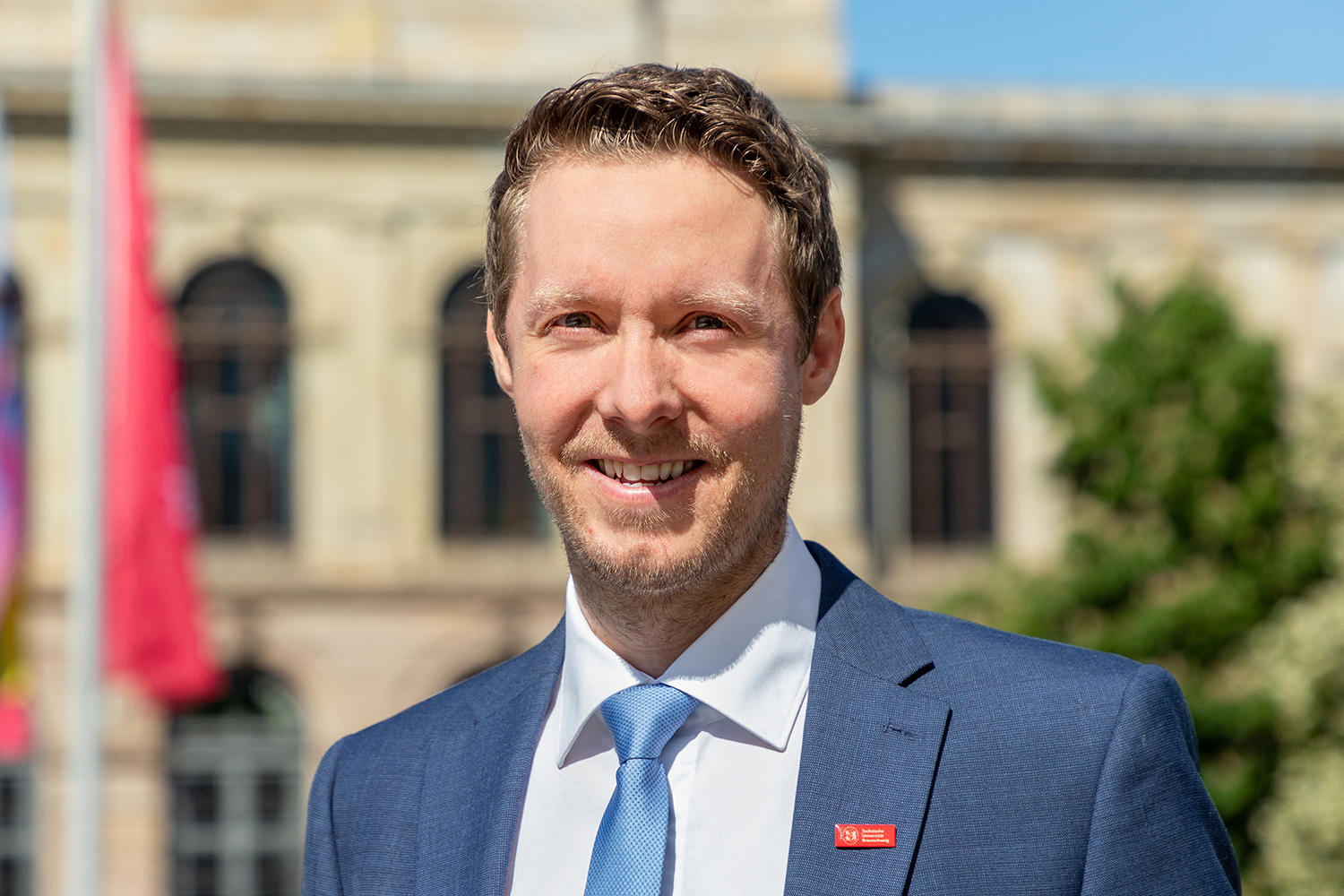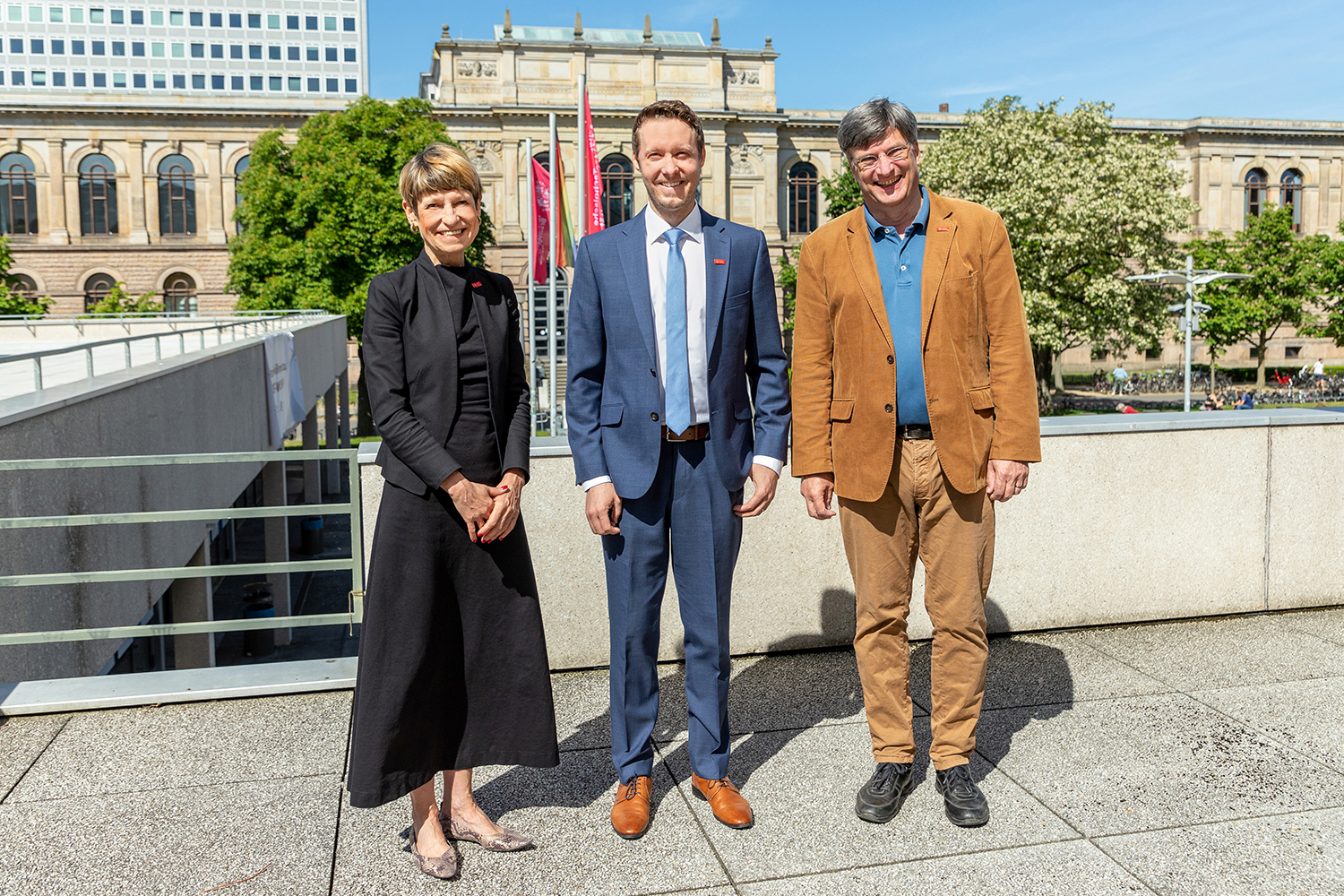“Multidisciplinary research with great societal benefit”. Matthias Schiedel is Professor at the Institute of Medicinal and Pharmaceutical Chemistry
Matthias Schiedel is a professor at Technische Universität Braunschweig since June 2023. He is interested in the development of new active substances for the treatment of inflammatory diseases and infections. What he appreciates about Braunschweig and why he has specialised in drug development in particular, he reports in his answers to our questionnaire.
Prof. Schiedel, why did you choose TU Braunschweig?

Prof. Matthias Schiedel, Photo credit: Kristina Rottig/TU Braunschweig
TU Braunschweig offers a very good professional environment for my research in the field of medicinal and pharmaceutical chemistry. Particularly in the field of developing new anti-infectives, TU Braunschweig is excellently positioned thanks to its research focus “Engineering for Health” (formerly “Infektionen und Wirkstoffe“ (Infections and Active Substances)) and the close networking with the Helmholtz Centre for Infection Research (HZI) based in Braunschweig.
Interestingly, Braunschweig was also the city where I had the opportunity to present my own work to a larger audience for the first time in 2010 at the annual conference of the Deutsche Pharmazeutische Gesellschaft (DPhG). Thus, my appointment to TU Braunschweig has, in a way, brought me full circle.
How would you explain your work to a person not familiar with the subject?
One of the focal points of my research is the development of molecular tools and drugs for G protein-coupled receptors (GPCRs). These receptors play an important role in the transmission of signals and are involved, among other things, in the formation of light, odour and taste stimuli. However, GPCRs can also contribute significantly to the development of diseases and are therefore of outstanding importance as target structures for drug research. Areas of application for the drug candidates and molecular tools developed in my research group are in the field of diagnosis and treatment of inflammatory diseases and the development of new anti-infectives.

President Angela Ittel with Prof. Matthias Schmiedel and Prof. Frank Eggert (Dean of the Faculty of Life Sciences). Photo credit: Kristina Rottig/TU Braunschweig
What are the main research areas and projects you are working on at TU Braunschweig?
Due to TU’s research focus “Engineering for Health” and the close networking with the HZI, a particular focus of my planned work will be on the development of new anti-infectives. Among other things, I want to participate in the continuation of collaborative projects with the HZI for the development of new active substances for the treatment of parasitic diseases, which were already initiated by my predecessor Prof. Conrad Kunick. I am particularly pleased about the continuation of this collaboration, which has been so successful so far, as I already did research on parasitic diseases during my doctorate in Freiburg and my postdoc at the University of Oxford, so I can contribute a certain wealth of experience.
What made you decide to do research in this area?
Even during my Pharmacy studies, I was particularly enthusiastic about the content of Medicinal and Pharmaceutical Chemistry. Thanks to my great supervisors and mentors during my doctorate, my postdoc and my time as a junior research group leader, my desire to remain true to academic research in this field has grown and grown. What I find particularly fascinating about research in the field of drug development is that it combines highly interesting multidisciplinary research with a great social benefit of the work. In the field of the development of new anti-infectives, academic research has, in my opinion, a very special significance, since large parts of the pharmaceutical industry are hardly involved in this field any more for economic reasons.
What does your everyday working life look like in three key words?
Teaching, research, administration.
Thank you very much!
